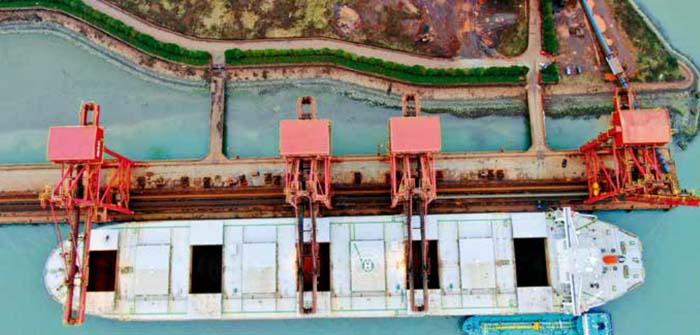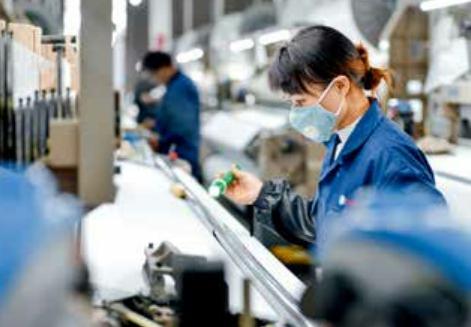Major Topics Forecast for 2019“Two Sessions”
by Yi Mei

The second session of the 13th National Peoples Congress (NPC) and the second session of the 13th National Committee of the Chinese Peoples Political Consultative Conference (CPPCC), collectively known as the “two sessions,” will open on March 5 and March 3, respectively.
As the annual sessions of Chinas top legislative and advisory bodies, the two sessions, involving thousands of NPC deputies and CPPCC members, have always drawn intense scrutiny from both the public and media.
This year, Chinas economy will clearly be a hot topic at the two sessions considering it is already in the spotlight of both domestic and international media. Against a backdrop of increasing uncertainty and rising protectionism globally, Chinas economy faces great challenges despite a sturdy performance last year with a year-on-year GDP growth rate of 6.6 percent, totaling US$13.6 trillion. The 7th round of trade talks between China and the United States. has just finished. The Trump administration announced it would delay the tariff increase on China now scheduled for March 1. It was positive news for Chinas economy. But considering pressure on China to deliver a domestic economic transformation, economic issues will easily make the top of the two sessions agenda.
China is striving to become a “moderately prosperous society in all respects” by 2020, just before the centennial anniversary of the founding of the Communist Party of China. Achieving this goal would require all rural residents living below the current poverty line to be lifted out of poverty by 2020. It would mark the first time in Chinas history that extreme poverty is eliminated. In 2019, the goal is to raise 10 million rural residents above the poverty line. All signs point to poverty reduction becoming a hot topic at the two sessions. Around a billion Chinese people have worked their way out of poverty over the last four decades of reform and opening up, which was first introduced in China in 1978. Those still left under the poverty line are the targets of Chinas current poverty reduction efforts. NPC deputies and CPPCC members are expected to contribute great wisdom and plentiful suggestions on this topic.
As one of the “three critical battles” China must fight, pollution control has in recent years been emphasized by the Chinese government and captured mounting public concern. In the most recent years, Chinas environment has seen gradual improvement. To address air, water and soil pollution, the Chinese government has designed and enforced a ten-point list of measures for each and achieved solid progress. The pursuit of a clean environment is not only a public health issue but also conducive to China transferring its economic development mode from energy-intensive to greener and higher-quality. So, environmental protection will inevitably be heavily discussed at the two sessions.
Since he took office in 2012, Chinese President Xi Jinping has vigorously promoted anti-corruption to build a “clean” government. China has strengthened government supervision and auditing-based oversight, taking steps to investigate, prosecute and address violations of law and regulations and severely punishing those engaged in corruption. The anti-corruption campaign has snowballed into a crushing tide with stronger and growing momentum. How to take the anti-corruption campaign to the next level and consolidate its fruits remains a key topic to be discussed at the two sessions.
In the government work report he made in 2018, Chinese Premier Li Keqiang said, “All of our work is work for the people.” Peoples livelihood has always been the concern of the Chinese government, which adheres to the vision of people-centered development. So, issues that concern the people most—education, employment, healthcare, social security and order—need to be properly addressed to ensure the people feel richer, happier and safer. Additionally, improving the living standards of Chinese people will boost individual consumption and reduce Chinas economic growths dependence on exports. So, new policies concerning peoples livelihood may be released at the coming conferences.
The Chinese government has actively pursued coordinated development of Beijing, Tianjin, and Hebei and development of the Yangtze River Economic Belt and the Guangdong-Hong Kong-Macao Greater Bay Area, designed and implemented related plans, and undertaken numerous key projects. Also the country has planned to develop major city clusters and pursued more balanced development of small, medium and large cities as well as small towns. It is obvious that coordinated development will also be on agenda of the two sessions.
